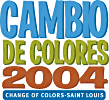Last updated:
May 19, 2004
|
Workshop:
How To Start and Run A
Mentoring Program for Latino Youth
A report contributed by 
Theme: Youth, Families and Communities
Moderator: Ana Pizarro, MSW Catholic Community Services
Presenters:
- Ana Beatriz Paul, Catholic Family Services, Centro Hispano
- Virginia Braxs, Hispanic Community & Student Groups
Liaison Volunteer Programs, Dept. of Romance Languages & Literatures,
Washington University
Ana Beatriz Paul�Catholic Family Services, Centro Hispano
When one child�s parents called to say he was involved in a gang,
Centro Hispano got involved.� They developed a strategy to work with
that child that involved the police department, his parents, the school,
a social worker and their own organization. �The social worker provides
counseling, and the police let the child know that they �know and see
what you�re doing,� says Ana Beatriz Paul of Catholic Family Services,
Centro Hispano. �
Centro Hispano works with children involved with gangs and those who
have the potential of becoming involved.� The kids go through a tutoring/mentoring
program, experience healthy lifestyles education and real life work
experience.� They are exposed to culture and the arts which is recommended
by experts to reduce violence.
Parents are involved through monthly group meetings and individual
meetings.� Centro Hispano also serves as a liaison between the school
system and the parents. � But does it get results?�
Paul says the boy whose parents first came to the organization for
help said, ��I am not part of that gang anymore,� with a big smile
on his face.� Later on that gang disappeared.� If we join together,
less and less of our youth become part of those gangs. �
Virginia Braxs, Hispanic Community & Student Groups Liaison
Volunteer Programs, Dept. of Romance Languages & Literatures,
Washington University
In 1998, Virginia Braxs, Professor of Romance Language & Literature
at Washington University, began integrating four hours of community
service into her language courses. �The students had such positive
experiences, she encouraged a colleague to do the same.� By 2000, they
started working in partnership, providing volunteers majoring in Spanish
to help in an after-school program to provide tutoring.� Accion Social
Communitaria evolved from a tutoring program into
an equally important mentoring program.
The program serves 30 youth with group activities like mentored discussions
of various topics and activities addressing teen
issues, health and wellness.� The goals of this program include motivating
kids to stay in school, developing self-esteem and self-respect, and
encouraging
them to have high hopes, dreams and goals.
The program �provides a structure for them, successful Hispanic student
role models.� The experiences are widening their world, opening their
minds, celebrating their lives, � says Braxs.
Partnership, say Braxs, has been the key to success and overcoming
various obstacles.� �The more we empower people, the more successful
the program is.�� Hispanic students have stayed in the program, improved
academically, and have started talking about going
to college. �
The next step on the ladder of success is the development of the Open
Door to College program in conjunction with Catholic
Family Services.� This
will include financial aid preparation, college application
assistance, SAT preparation, and trips to local colleges for 10th-12th graders.� Braxs
says, �we really can make a difference changing one life at a time.�
Day 2: Thursday, March 11, 2004
Reporter: Diane Kuschel
(573)875-1395
(573)881-4041
kuscheldg@missouri.edu
|
